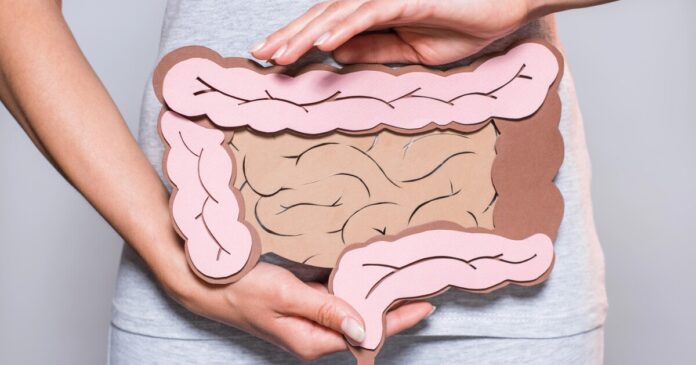A novel treatment for irritable bowel syndrome (IBS) is on the horizon, with the discovery that two specific gut microbes produce serotonin that protects against inflammation and damage.
Scientists from the University of Gothenburg have made a critical discovery about serotonin in the gut, identifying two bacteria that produce the substance themselves – Limosilactobacillus mucosae and Ligilactobacillus ruminis.
Earlier research had found that gut bacteria impacts how much serotonin is produced by the human host, but until now it wasn’t clear that the microbes had the capability of making biologically active serotonin on their own.
“It is incredibly fascinating how the gut bacteria can produce bioactive signaling molecules that affect health,” said co-lead author Fredrik Bäckhed, professor of molecular medicine at Sahlgrenska Academy at the University of Gothenburg.
Serotonin is most often associated with the brain, where it acts as an important chemical messenger – or neurotransmitter – linked to mood and other brain functions. However, it’s also crucial to maintaining digestive system function, especially with controling bowel movements through the enteric nervous system. And the gut produces as much as 95% of the serotonin in our bodies.
And while IBS is a common gastrointestinal disorder, we still don’t know the exact cause of it – except that the gut microbiome and serotonin play a key role in it.
In this new study, the scientists demonstrated that two specific gut bugs can produce serotonin and may have a significant impact on regulating gastrointestinal function. Previously, serotonin production in the gut has been attributed to enterochromaffin (EC) cells, found within the lining of the intestinal wall.
“Our results indicate that certain intestinal bacteria can produce bioactive serotonin and thus play an important role in intestinal health and open new avenues for the treatment of functional gastrointestinal disorders such as IBS,” said Magnus Simrén, a Professor of medical gastroenterology at Sahlgrenska Academy at the University of Gothenburg.
When L. mucosae and L. ruminis were administered to germ-free mice with serotonin deficiency, the levels of this signaling substance increased – but so too did the density of nerve cells in the colon. In addition to this, the bacteria corrected intestinal transit time, regulating otherwise dysfunctional bowel movement.
The researchers also determined that people with IBS have lower levels of L. mucosae in their stool – which is a reflection on gut microbial makeup – compared to healthy individuals, and it also possesses an enzyme that’s essential for serotonin to be produced.
“Our findings indicate that intestinal bacteria can form signaling substances such as serotonin, which may be the key to understanding how the intestine and its inhabitants can affect our brain and the behavior,” said Bäckhed.
The study’s findings also suggest that microbiome serotonin synthesis may require two or more bacteria and microbe-microbe interactions, which now requires further investigation. In this case, L. mucosae and L. ruminis working together to produce it.
Nonetheless, the discovery provides a new avenue of research into novel gut microbe-based treatment strategies for IBS.
“We identified human co-isolated L. mucosae and L. ruminis strains that synthesize serotonin in vitro and modulate enteric serotonin levels, enteric innervation, and intestinal transit time in vivo,” the scientists noted. “Future research may investigate whether serotonin-producing bacteria could promote physiologic serotonin levels in patients suffering from dysfunctional intestinal motility.”
L. mucosae was accidentally discovered in pigs in 2000, while L. ruminis has been known since the 1960s. They’re both part of the Lactobacillus genus of bacteria, with many species found in fermented foods. However, the dietary potential of these two key serotonin-producing strains is not well known.
The study was published in the journal Cell Reports.
Source: University of Gothenburg


